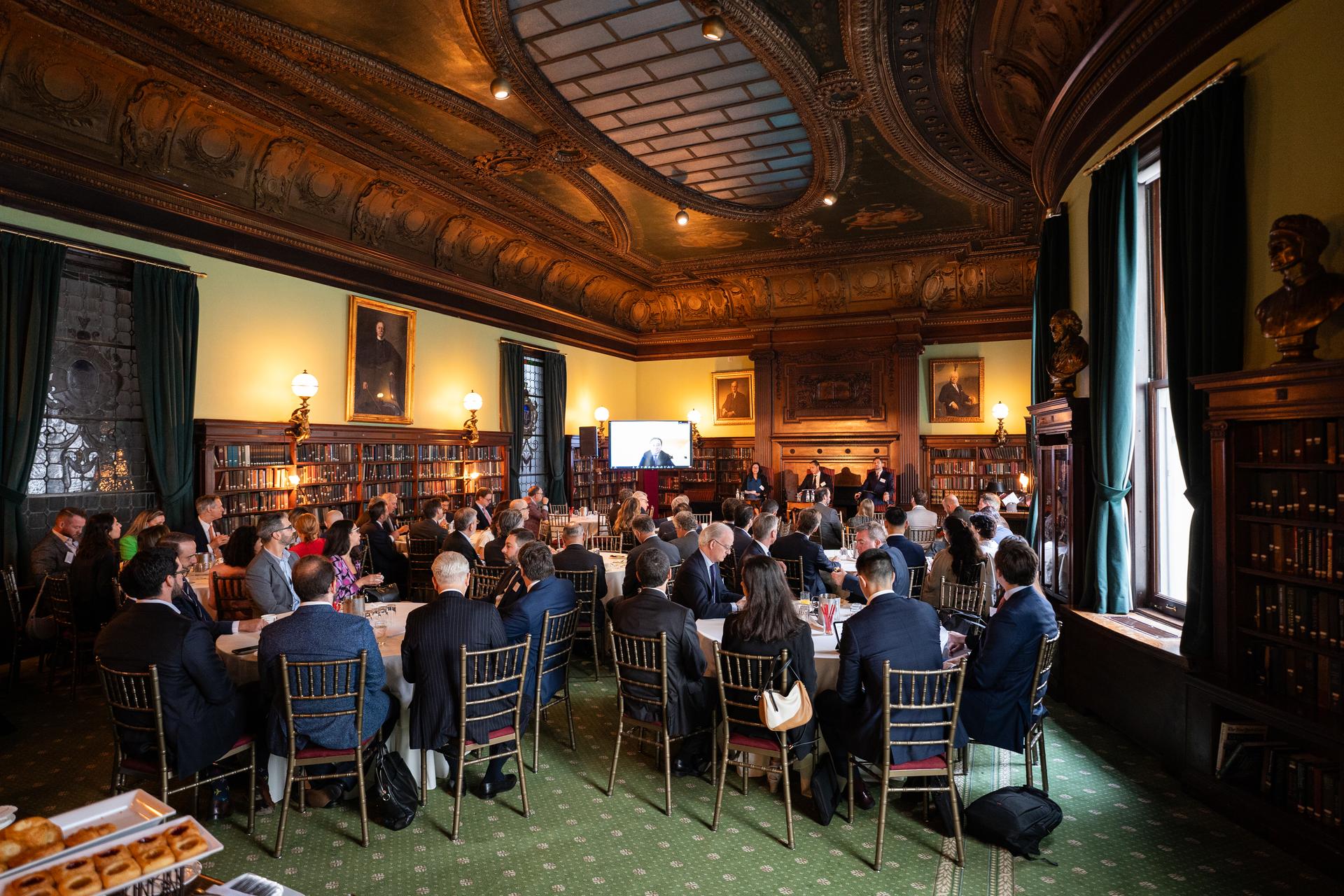New York hosted the latest session of the Pérez-Llorca/IE Chair on Commercial Law, coinciding with its 14th anniversary. This event, which was co-organised with the prestigious US firm Skadden, Arps, Slate, Meagher & Flom, focused on the multidisciplinary analysis of current and future dynamics in the field of financing sports entities. The session was opened by Javier Gómez, Corporate partner at Pérez-Llorca and managing partner of Pérez-Llorca’s New York office, while Marcel Enrich, Corporate partner at Pérez-Llorca, and Alejandro Gonzalez Lazzeri, Corporate partner at Skadden, Arps, Slate, Meagher & Flom, acted as speakers. The presentations were moderated by Sara Sánchez, associate professor at IE Law School.
Marcel Enrich emphasised that, traditionally, European football clubs have mainly used bank loans and factoring operations to finance their activity. However, the modernisation of the industry has led to a shift towards more flexible and specialised financing mechanisms, such as private equity, bond issues and structured financings backed by club assets such as TV rights, sponsorships, ticketing, etc.
Enrich and Gonzalez Lazzeri also discussed how sports entities and leagues globally have faced economic complexities, including the COVID-19 pandemic, as well as high interest rates and inflation. In this context, public support and innovative private financing models have been crucial.
In the field of corporate social responsibility, Alejandro Gonzalez Lazzeri pointed out that the industry is no stranger to ESG trends and, therefore, sports entities have been and are being very active in the implementation of sustainability policies. However, this is also a challenge for these entities, as sustainability does not always translate into maximising economic benefits. Marcel Enrich then highlighted the impact of increasingly stringent sectoral regulation on corporate governance, both from national and international bodies such as UEFA, and how sports entities have adapted.
The implications of financial fair play regulations, especially in the European context, were also discussed. The speakers emphasised the complexity of implementing this regulation, highlighting the need to harmonise the regulations coming from sporting bodies in order to avoid basic differences in the competitive capacity between clubs and to find a balance between the restrictions inherent to “fair play” and the flexibility necessary for sporting entities to develop and grow their activity.
The session concluded with a lively question and answer session, which explored topics such as the latest trends in financing for stadium construction and renovation, and the growing trend for sports entities to be listed on international financial markets.
